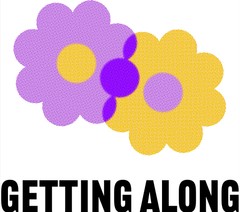Getting Along is a column about taking care of yourself, setting boundaries, and having difficult conversations, for people who struggle with all three.
Advertisement
It’s reasonable for there to be a gap between how people act in person with friends and how they act on the internet. There probably should be a difference, since social media is at least fairly public. Still, it’s incredibly unnerving when that gap becomes a gulf, or when a friend who is perfectly lovely and likable in person is… kind of insufferable online.Behaving badly on the internet is typically a “you know it when you see it” judgment, but often looks something like:
- Regularly acting aggro and/or getting involved in drama
- Oversharing wildly
- Posting an astonishing number of selfies and/or affecting a cringey selfie pose or expression
- Trying desperately to be an influencer (“Follow my journey!!!” “Sound off in the comments!”)
- Being a faithful reply guy and/or constantly trying to get celebrities’ attention
- Turning a personal account into a [stan/positive affirmations/meme/MLM promo/anti-vaxx] account
- Sharing edited or “curated” versions of IRL events that are actually just… untrue
- Attempting to make unsuspecting friends their Instagram boyfriend
- Posting opinions that range from embarrassing to actually offensive and wrong
- Adopting a persona that feels Extremely Not Them
- Generally lacking self-awareness
Advertisement
If you love your friend but don’t love their terrible internet persona, here's how to address it.In general, I’m a huge believer in being honest with people you care about and not letting issues fester. But I actually think in many—if not most—instances involving bad internet behavior, simply ignoring it is fine. A lot of this stuff is lightly embarrassing but ultimately harmless, and you simply might not be the intended audience for, say, your friend’s butt pics or corny daily affirmations. Social media is a weird mix of job fair, horny house party, high school reunion, office happy hour, group chat, and reality TV competition, and the currency and local language changes depending on the app or specific circle you’re in in a given moment. So before you start drafting a long-winded “Webster’s dictionary defines ‘oversharing’ as…” email, consider that your friend’s content might not really be meant for you.But! That doesn’t mean you have to keep consuming their content. I’d actually argue that you shouldn’t. Don’t hurt your own feelings! In these low-stakes instances, the best move is to simply mute the friend on any platforms where they are being insufferable. On Instagram, you can mute their main feed or their stories (or both), and you can mute specific words and hashtags on Twitter, which is extremely helpful if your friend tends to go off about, say, a specific fandom or politician.
Know when it’s best to say nothing at all.
Advertisement
You also aren’t obligated to engage with anything they post. Not hitting like is an act of quiet resistance wrapped in plausible deniability and I highly recommend it.(Unless the person is your partner, in which case you are kind of obligated to like all of their selfies.) Any friend who interrogates you about not seeing or engaging with their posts is probably the one who should be doing some introspection. Everyone has a different relationship to their social apps, folks are constantly doing different digital detoxes or just… not hanging out online, and the algorithms serving up content are constantly changing, so it’s reasonable to not see everything a friend posts. It’s fine!While I wish it were always possible to just mute people and move on, there are times when you’ll need to speak up. Over time, a friend’s obnoxious internet behavior can change your view of them, hurt their reputation (or yours, if people know you’re close), or lead to a level of behind-their-back shit-talking that’s unkind and bad for the relationship. So in a lot of instances, actually talking about it—even if it’s a bit awkward in the moment—is actually the kindest move, particularly if you care about preserving the friendship.Maybe your friend keeps “joking” that you haven’t been showing them enough love online lately, or they (finally) got called out for their content and have turned to you for backup. Whatever the reason, if they are dropping the conversation in your lap and eagerly waiting for your response, it’s time. You’re on!
When your friend is insisting you engage with their content and you’d rather not, be gentle but honest with them.
Advertisement
Below is some language you can use as a starting point in determining what to say to your friend if you’re feeling a bit stumped. You know your people best, so you should definitely tweak these so they feel authentic to you, and so they’ll resonate with your friend. (Or just ignore them entirely if you don’t need them! I don’t know your life!!!) Also, your tone matters a lot. With some friends, in certain instances, keeping things light or even gently joking is the way to go; in other cases, making a “joke” when you’re completely serious will come across as really hurtful and make things worse.When your friend calls you out for not viewing their Instagram stories:“Oh, I just haven’t been [watching as many stories/on IG/on my phone] as much lately!”When they send you the link to their newest selfie and say “like my pic!” and you just can’t bring yourself to because it’s too thirsty or the caption is bonkers or it’s just the fifteenth time this week:“Buddy, I hope you know I think you’re very [hot/beautiful/adorable] but you post a lot of selfies, and I don’t love this thing where you’re insisting that I like every single one.”(A version of the above will also work for requests to like and subscribe to their MLM/meme/niche fandom/budding influencer account.)
Advertisement
When they vent to you about getting called out for being horny on main or oversharing:“Honestly? I think they kiiiiind of have a point… like, it’s your life, but if you’re asking my opinion, then, yeah, I think that was a bit [creepy/awkward/odd/too much].”When they ask you “Which pic do you like best?” and all of the options include their cringey selfie face/pose/fake laugh:“Hmm… I guess I like #3 best, but honestly, I don’t think any of these really look like you? I’ve never seen you make this face in person!”When they show you a really unprofessional subtweet they posted about a work situation and want your validation/approval:“I gotta say, I do think [your boss is a monster/your coworker is the worst/your company sucks/you are technically correct here], but this isn’t a good look and [probably isn’t going to go over well/is likely to get you in trouble].”It’s embarrassing to get called out by a friend, so they might not take any of this well, no matter how gently you phrase it. If they get defensive and seem unwilling to listen to your POV, drop the subject with neutral response—like, “Yeah, I don’t know!” or, “Hm,” or even, “Fair.” You’ve made your point, and you actually don’t have to convince them to see things your way.
Advertisement
When your friend is doing something actively harmful, firmly call it out.
Advertisement
So, that might look something like…“Hey, [Name], there are a lot of things wrong with what you’re saying here. Let’s maybe talk about it offline.”“Hey, [Name], there are a lot of things wrong with this take. I’d really urge you to listen to what everyone else is telling you right now.”“[Name], I gotta say… you’re not coming across great here. There’s a lot of good info in this thread, and I’d encourage you to spend some time with it.“Yiiiiikes.” (This one is a bit brief/dismissive, so it’s best followed up with one of the above. But it’s a great place to start if their behavior has left you legitimately speechless and you need a moment to collect yourself.)From here, you can take the discussion offline (or just follow up with a longer, more complete response online). Your friend will be in a better position to actually hear your perspective if they aren’t publicly on blast, and you’ll be doing them a kindness by not going super hard in public (even if they kind of deserve it).Then again, if you’re in the group that is the target of their behavior, the two of you aren’t terribly close, or their behavior has made you realize you can actually no longer be friends with them, you don’t have to do that part. You can just give them one of the clear “absolutely no” messages from above and be done.
Advertisement

